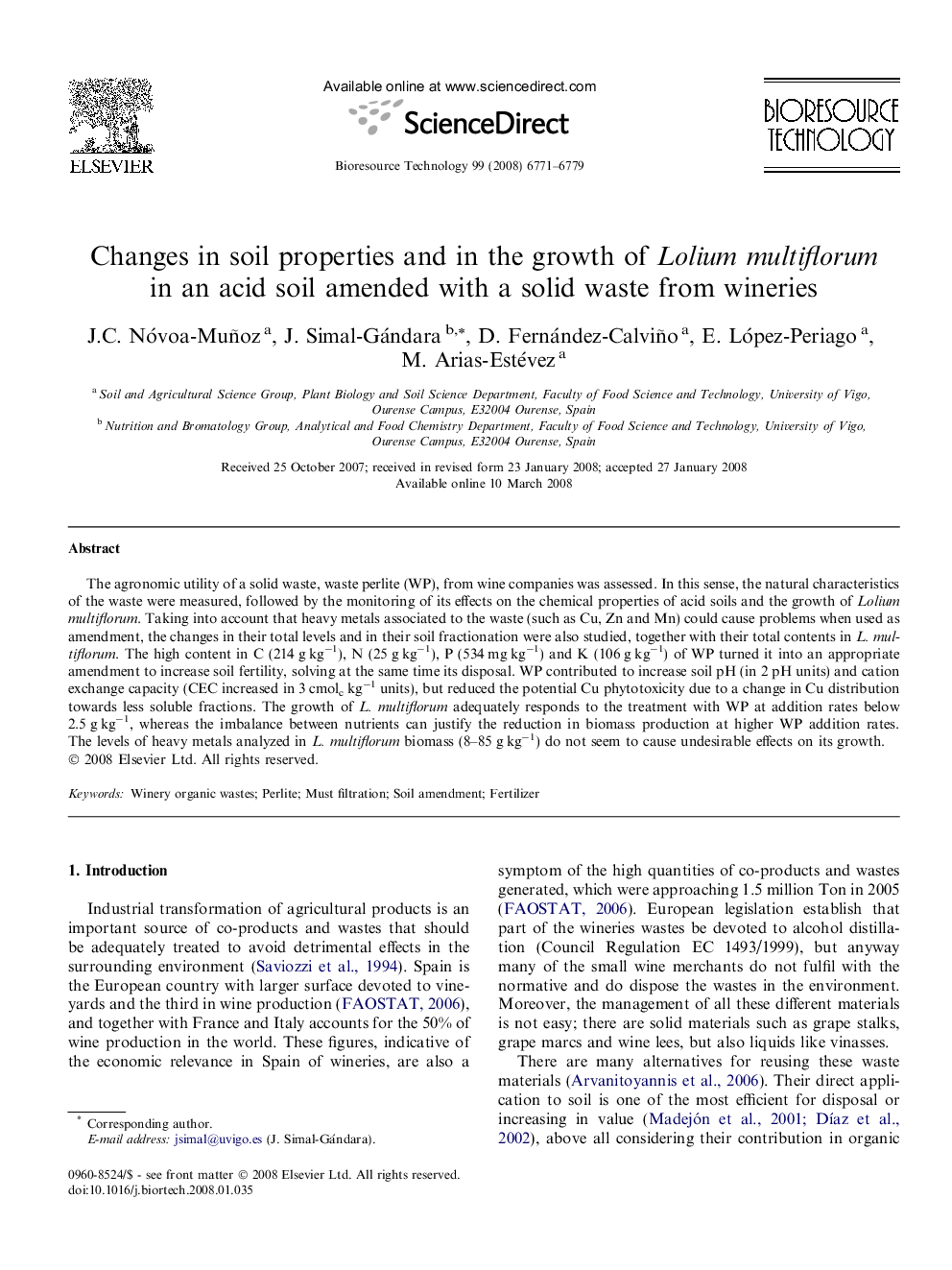| Article ID | Journal | Published Year | Pages | File Type |
|---|---|---|---|---|
| 685255 | Bioresource Technology | 2008 | 9 Pages |
The agronomic utility of a solid waste, waste perlite (WP), from wine companies was assessed. In this sense, the natural characteristics of the waste were measured, followed by the monitoring of its effects on the chemical properties of acid soils and the growth of Lolium multiflorum. Taking into account that heavy metals associated to the waste (such as Cu, Zn and Mn) could cause problems when used as amendment, the changes in their total levels and in their soil fractionation were also studied, together with their total contents in L. multiflorum. The high content in C (214 g kg−1), N (25 g kg−1), P (534 mg kg−1) and K (106 g kg−1) of WP turned it into an appropriate amendment to increase soil fertility, solving at the same time its disposal. WP contributed to increase soil pH (in 2 pH units) and cation exchange capacity (CEC increased in 3 cmolc kg−1 units), but reduced the potential Cu phytotoxicity due to a change in Cu distribution towards less soluble fractions. The growth of L. multiflorum adequately responds to the treatment with WP at addition rates below 2.5 g kg−1, whereas the imbalance between nutrients can justify the reduction in biomass production at higher WP addition rates. The levels of heavy metals analyzed in L. multiflorum biomass (8–85 g kg−1) do not seem to cause undesirable effects on its growth.
